Delta State offers a Master of Education (MEd) degree in Counseling. The M.Ed. degree in counseling is a 60-hour program designed for students who wish to pursue professional study in education as classroom teachers, counselors, supervisors, administrators, or in specialized areas. Students completing this degree may choose the School Counseling specialty or the Clinical Mental Health Counseling (CMHC) specialty. Our counseling master’s degree online offers a pathway to becoming a Licensed Professional Counselor (LPC) to work in clinical mental health settings and private practice and also a pathway for students to receive the Mississippi Class AA Educator Licensure to work in K-12 settings.
The program offers both a hybrid and online option. Students within 100 miles of campus enter the hybrid format option and students beyond 100 miles of campus enter the fully-online option.
Online or Hybrid
Program-specific Student-Faculty Ratio
AA
Mississippi Educator Licensure Pathway
Why Get an Online or Hybrid Counseling Master’s Degree at DSU?
Our Counselor Education faculty members help students develop the awareness, knowledge, and skills necessary to be a change agent in a global community. Through our counseling lab, we provide a hands-on experience for our students. Students have the support of faculty, staff, and peers in the program. Students in our program form lasting professional relationships with each other, their cohort, the faculty, and professionals in the community and throughout Mississippi. Faculty have their own clinical practices and bring their own real-world experiences into the classroom. There are no prerequisite courses, just a bachelor’s degree. It doesn’t matter what the bachelor’s degree is in.
This program is accredited by the Council for the Accreditation of Counseling and Related Educational Programs (CACREP). The mission of CACREP is to promote the advancement of quality counselor education programs. CACREP Accreditation provides recognition that the content and quality of the program has been evaluated and meets standards set by the profession.
- Applications accepted year-round
- Fall and Spring enrollment
- Online student advisement
- Online synchronous
- Fulltime and part-time options
- Hybrid and online format options
- In-person and online class attendance flexibility
- Research opportunities
- Field experience (Internship) requirements
- Chi Sigma Iota Honors Society chapter
- Annual Helping Professions Conference
- CACREP accredited since 1991
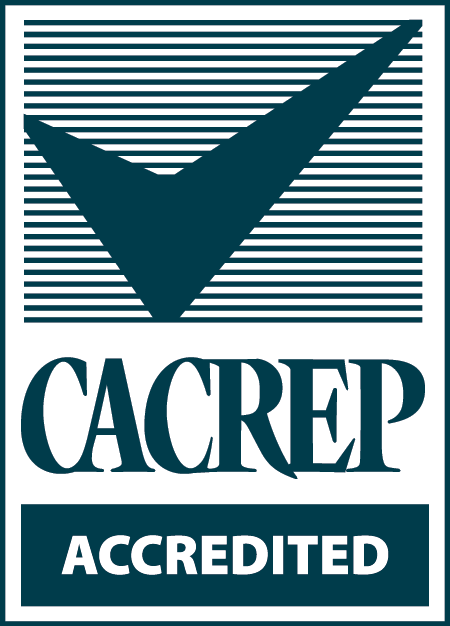
M.Ed. in Counseling Specialties
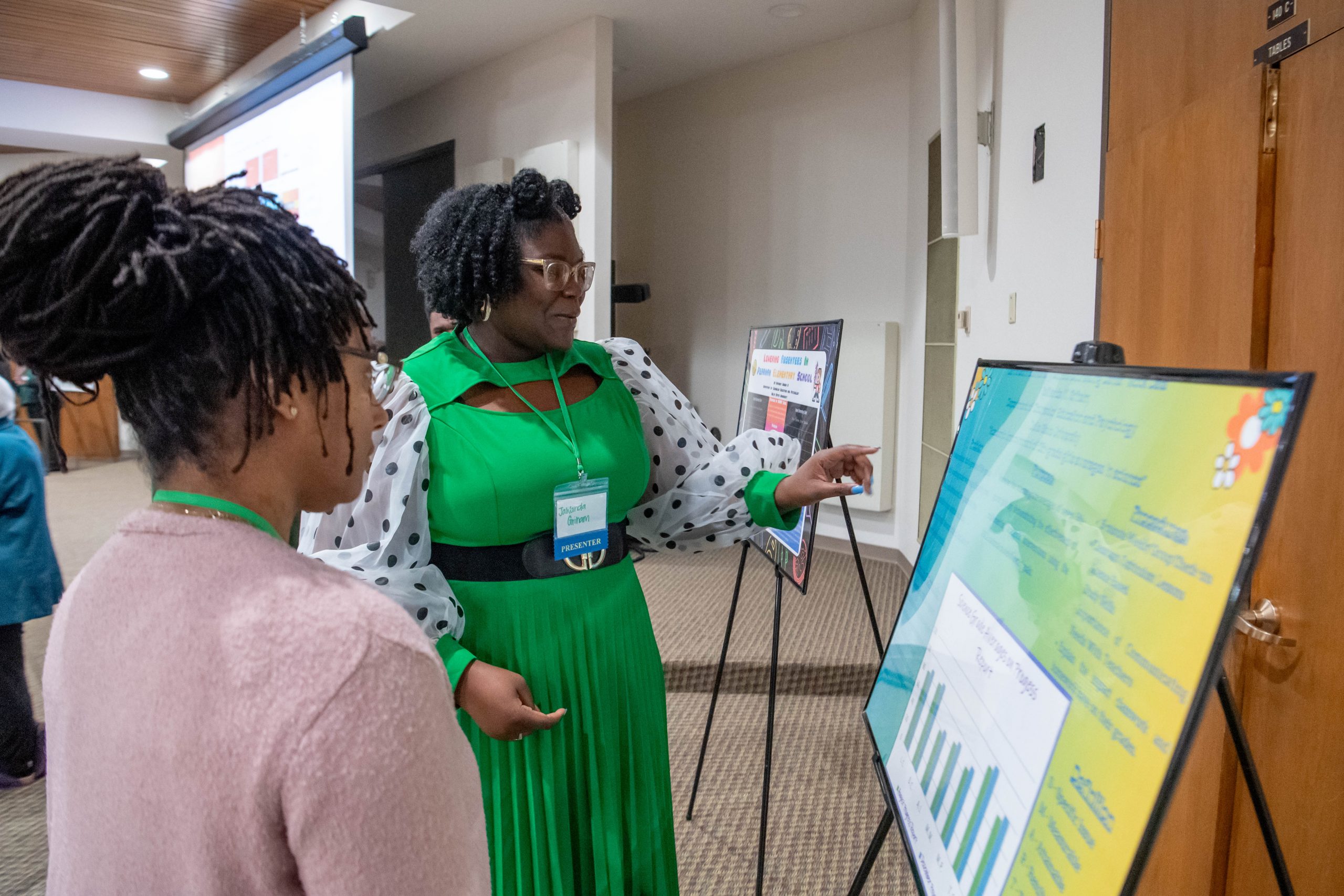
Clinical Mental Health Counseling
Students who enroll in the Clinical Mental Health Counseling (CMHC) specialty are prepared to work in mental health counseling venues anywhere in the United States and as entrepreneurs in private practice. Students will learn the foundations of clinical mental health and Psycho-diagnostics. Students are trained to work with all ages and populations – children, adolescence, and adults – on a full range of issues including addiction disorder, trauma, eating disorder, and more. Faculty will help arrange and guide students through a required internship within a clinical mental health setting.
This specialty allows graduating students to sit for the National Counselor Exam and petition the Mississippi Board of Licensed Professional Counselors for a Provisional Licensed Professional Counselor Credential. Students will be prepared to initiate the licensure process and gain experience in a supervised, clinical mental health setting. Licensure laws vary from state to state; however, a program accredited by CACREP generally meets the educational requirements for licensure.
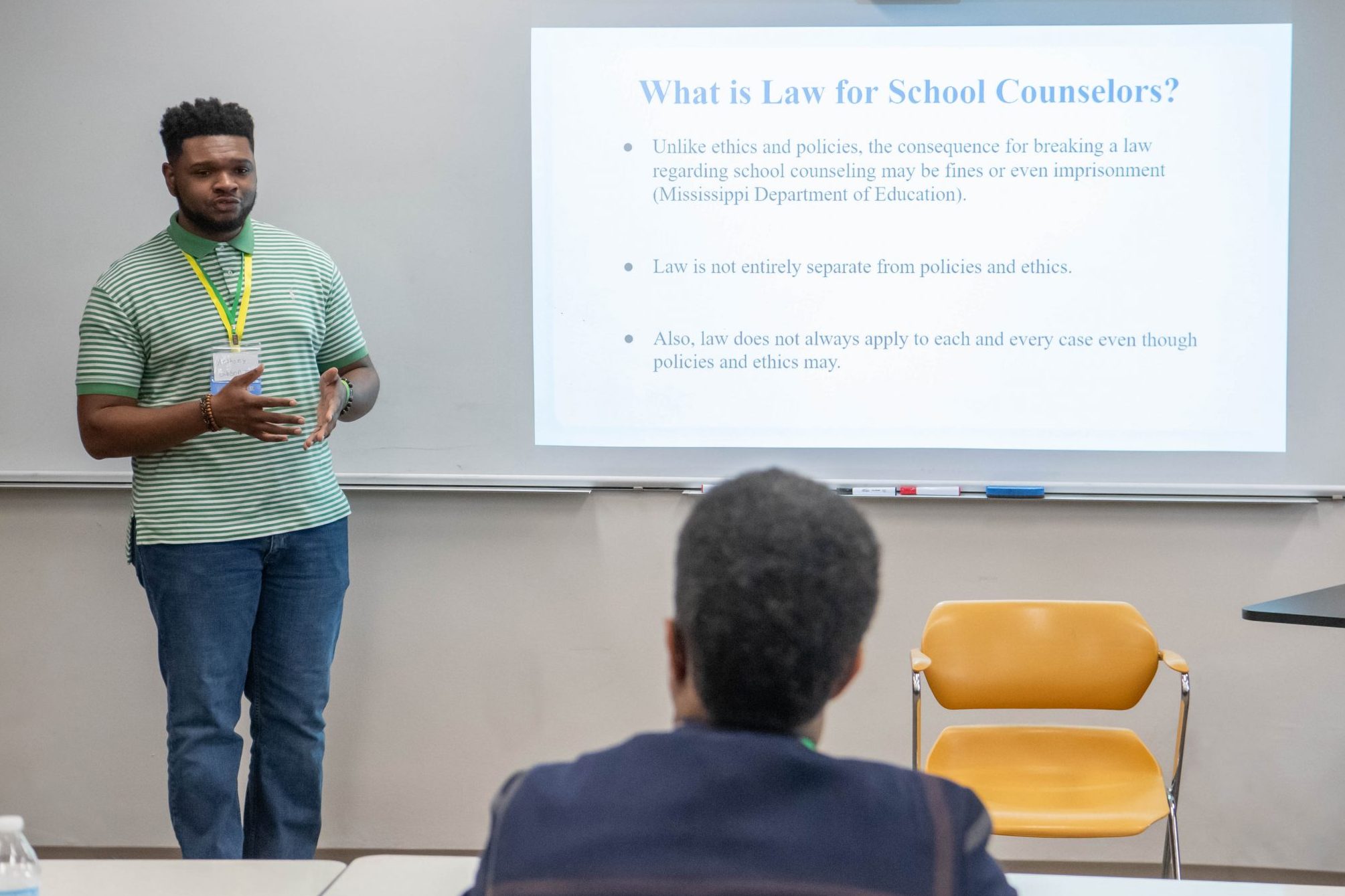
School Counseling
Students who enroll in the School Counseling specialty are prepared to be school counselors in Mississippi and beyond. Students will learn the foundations of School Counseling and Consultation and Collaboration with diverse populations. Students are trained to work with school age children in elementary, middle, or high school settings. Graduates are also able to work in higher education settings. Faculty will help arrange and guide students through a required internship within a School Counseling setting.
According to current Mississippi statutes, graduating school counselors may sit for the National Counselor Exam and petition the Mississippi Board of Licensed Professional Counselors for a Provisional Licensed Professional Counselor Credential. Educator licensure varies from state to state and it is important to be informed about other state requirements as you matriculate through the school counseling specialty.
What Can I Do With a Master’s Degree in Counseling?
Professional counselors help people gain personal insights, develop strategies, and come up with real solutions to the problems and challenges from every area of life. As trained and credentialed professionals, counselors accomplish this by getting to know clients, by building safe, positive relationships and suggesting tools and techniques they believe will benefit clients.
At Delta State, we train students as a counselor first, regardless of the specialty they choose. We have counseling alumni in school districts all over the state of Mississippi, and in other institutions such as: University of Mississippi Medical Center, Bolivar Medical Center, Oxford Treatment Center (Drug Addiction), and private counseling practices.
- School counselor
- Mental health counselor
- Mental health therapist
- Director of mental health facility
- Director of school counseling program
- Private practice counselor
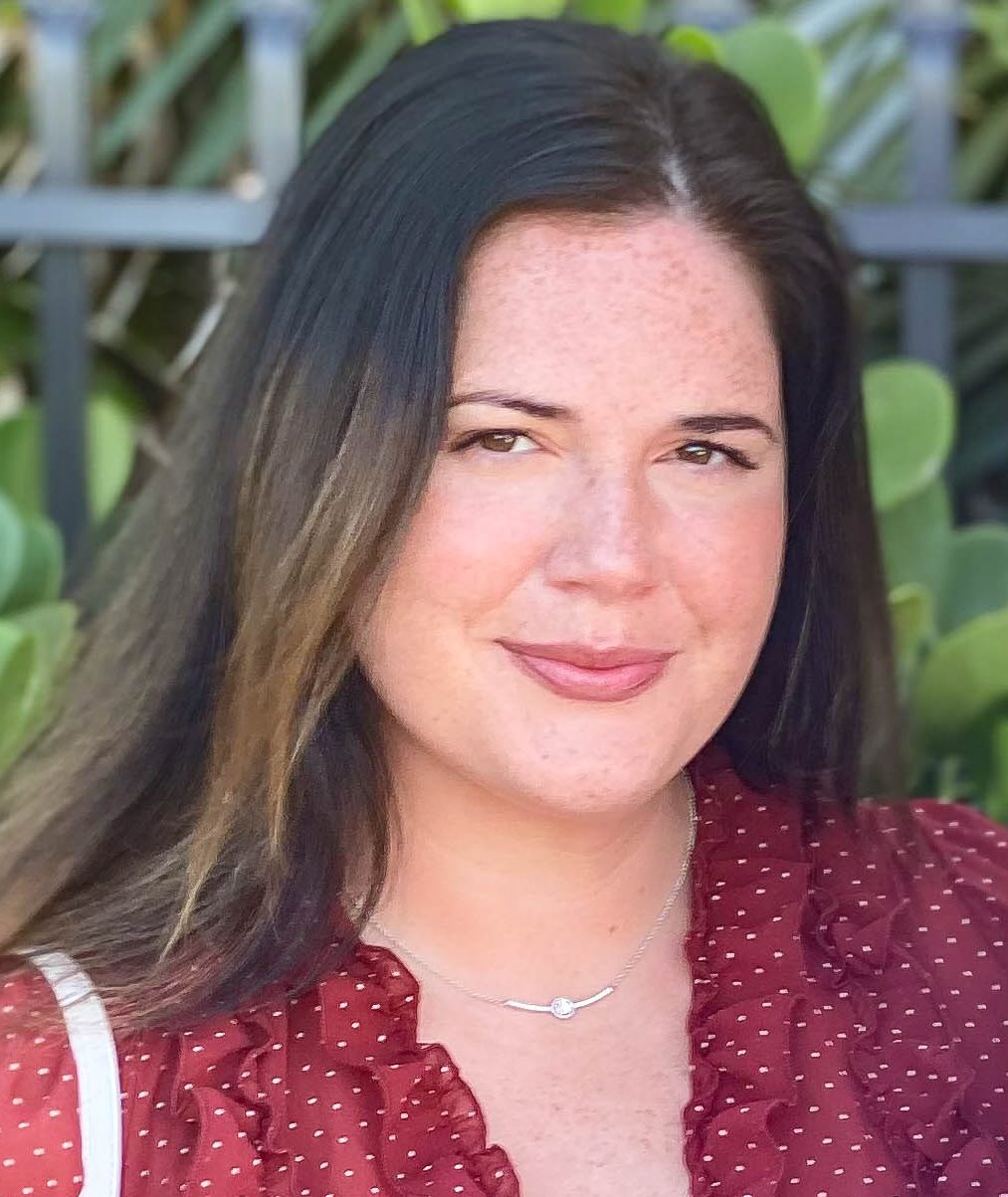
”Here at Delta State, you will be equipped for success as you deepen your understanding of human behavior, theoretical perspectives, interventions, techniques, and more! The Counselor Education program has provided a meaningful and quality learning experience. This program allows you to explore areas of interest, try new things, advance your skills, and connect with professionals.
Haley Carmen Hillhouse, Class of 2023Oxford Treatment Center, Counselor
Graduate Funding Opportunities
The Counselor Education program offers 3 scholarships for students who are currently in the program. Scholarship eligibility is based on a combination of factors, such as grades, leadership skills, initiative, motivation, and recommendation of the faculty and staff. Graduate students at Delta State University also have a number of funding opportunities available to them, including Graduate Assistantships, fellowships, scholarships, and loans. We also offer an affordable tuition rate with no additional fees for out-of-state students. We work closely with students to identify and apply for federal and state financial aid programs, as well as student loans and state scholarships. We are committed to providing our students with all of the tools necessary to succeed in the education field, including access to affordable education and financial support.
Program Goals
The faculty and staff of the Delta State University Counselor Education Program, through teaching, training, supervision, and experiential activity, develop ethical, competent, and culturally sensitive counselors who are prepared to work in school or community settings. Program faculty seek to strengthen the profession by modeling for students the professional expectation of continued growth and learning, interpersonal awareness, and practical application of sound principles and practices in their work as professional counselors.
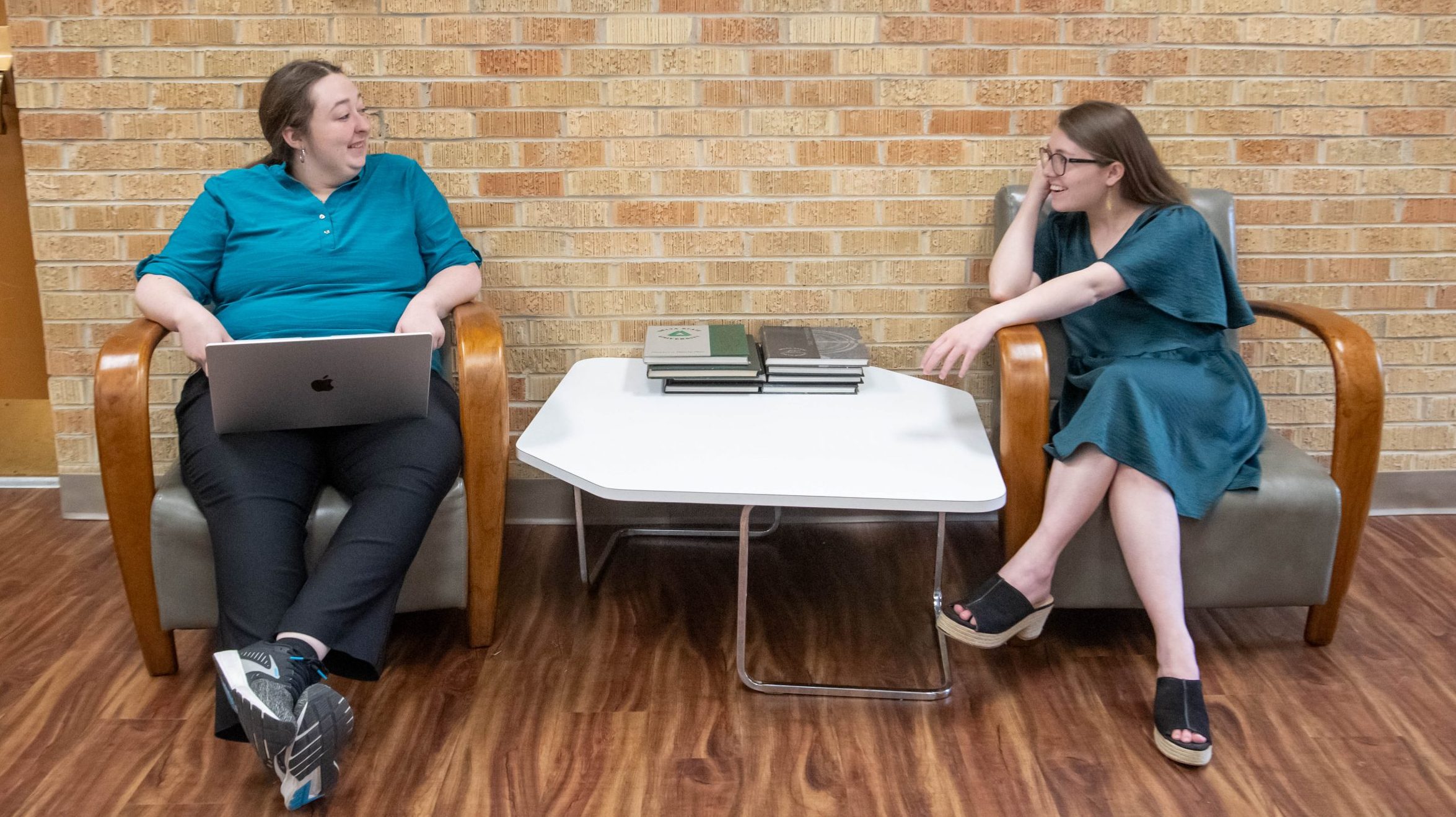
Admission Requirements
Application deadline is March 1st for Fall admission
Application deadline is October 1st for Spring admission
*Additional applications may be reviewed after the deadline.
Admissions decisions are based on the collective success of the following criteria. All documents related to admission should be sent to the Office of Graduate Studies at grad-info@deltastate.edu.
- Complete the Online Application with Admissions
- Minimum 2.75 GPA (cumulative) or 3.0 on last 60 hours of undergraduate work.
- Typed essay that reflects the applicant’s rationale for pursuing a career in counseling and demonstrates an awareness of the following characteristics that are necessary for becoming an effective counselor:
a. Ability to work well with others in a caring and authentic manner
b. Awareness of cultural issues and of being non-judgmental
c. Possession of integrity and ethical conduct
d. Commitment to professional development.
The essay is divided into 5 basic sections, each one designed so that the first few words of each segment are provided to get you started in the correct direction. Complete each segment (typewritten) until you are confident that you have provided clear and comprehensive responses.
i. My rationale for pursuing a career in counseling is best expressed as follows…
ii. My ability to work well with others in a caring and authentic manner is best expressed and demonstrated by…
iii. My awareness of cultural issues, and of the necessity of being non-judgmental, is best expressed and demonstrated by…
iv. My possession of integrity and ethical conduct is best expressed and demonstrated by…
v. My commitment to professional development is best expressed and demonstrated by…
- Three Professional References’ contact information with their name, position with place of employment, relationship with student, email address, and phone number
- Group Interviews with faculty
- Applicants who are non-native English speakers must have a minimum score of 90 on the TOEFL.
Upon completion, students are prepared for employment in the K-12 school setting, community, private practice, or agency setting.
Curriculum
The following courses are required to complete the Master of Education in Counseling.
Clinical Mental Health Counseling (Specialty)
| Course Number | Course Title | Credits |
| CED 600 | Introduction to Counseling and Professional Ethics | 3 |
| CED 601 | Counseling Theory | 3 |
| CED 602 | Assessment Techniques in Counseling | 3 |
| CED 604 | Counseling Pre-Practicum | 3 |
| CED 605 | Group Counseling | 3 |
| CED 606 | Career Development and Placement | 3 |
| CED 609 | Counseling Practicum | 3 |
| CED 610 | Clinical Mental Health Counseling Internship | 6 |
| CED 616 | Social and Cultural Foundations | 3 |
| CED 620 | Human Growth and Development | 3 |
| CED 627 | Foundations of Clinical Mental Health Counseling | 3 |
| CED 630 | Counseling Skills | 3 |
| CED 635 | Methods of Counseling Research and Statistics | 3 |
| CED 703 | Psychodiagnostics in Counseling | 3 |
| CED 711 | Crisis Intervention Techniques | 3 |
| CED 712 | Counseling Children and Adolescents | 3 |
| CED 715 | Marriage and Family Counseling | 3 |
| Approved Electives | 6 | |
| TOTAL | 60 | |
School Counseling (Specialty)
| Course Number | Course Title | Credits |
| CED 600 | Introduction to Counseling and Professional Ethics | 3 |
| CED 601 | Counseling Theory | 3 |
| CED 602 | Assessment Techniques in Counseling | 3 |
| CED 604 | Counseling Pre-Practicum | 3 |
| CED 605 | Group Counseling | 3 |
| CED 606 | Career Development and Placement | 3 |
| CED 609 | Counseling Practicum | 3 |
| CED 616 | Social and Cultural Foundations | 3 |
| CED 617 | Foundations in School Counseling | 3 |
| CED 619 | School Counseling Internship | 6 |
| CED 620 | Human Growth and Development | 3 |
| CED 630 | Counseling Skills | 3 |
| CED 635 | Methods of Counseling Research and Statistics | 3 |
| CED 707 | Consultation and Counseling of Diverse Populations | 3 |
| CED 711 | Crisis Intervention Techniques | 3 |
| CED 712 | Counseling Children and Adolescents | 3 |
| CED 715 | Marriage and Family Counseling | 3 |
| Approved Electives | 6 | |
| TOTAL | 60 | |
Licensure Requirements
The Master of Education in Counseling (M.Ed.) curriculum meets the state educational requirements for provisional professional licensure in counseling. This program prepares students to apply for applicable licensure and/or certification examinations in the state of Mississippi. To determine the state requirements for professional counseling licensure as an LPC, please visit the Mississippi State Board of Examiners for Licensed Professional Counselors (https://www.lpc.ms.gov/) webpage, then select the role where you want to know the professional licensure requirements.
To comply with regulations set forth by the U.S. Department of Education regarding professional licensure, Delta State University is required to make the following disclosure with respect to professional licensure outside the state of Mississippi: Professional Licensure Disclosure page.
Degree Requirements
A candidate for the Master of Education in Counseling is required to meet the following:
- 3.0 overall GPA
- Completed program of study (minimum of 60 course hours)
- Completion of Capstone Paper
- Completion of Professional Presentation
- Completion of minimum hours of field experience (700)
- Passed the Counselor Preparation Comprehensive Examination (CPCE)
For more information on degree requirements and specifics on courses needed to complete the degree, consult the Graduate Academic Catalog.
Fees
Tuition at Delta State University covers the cost of classes.
Some Counselor Education courses have a lab fees. Online courses are assessed a $5.00 per credit hour distance learning course fee.
Review the graduate academic catalog for other course related fees.
Program Coordinator
Dr. Mary Bess Pannel
Assistant Professor of Counselor Education
P: mpannel@deltastate.edu
T: (662) 846-4392

